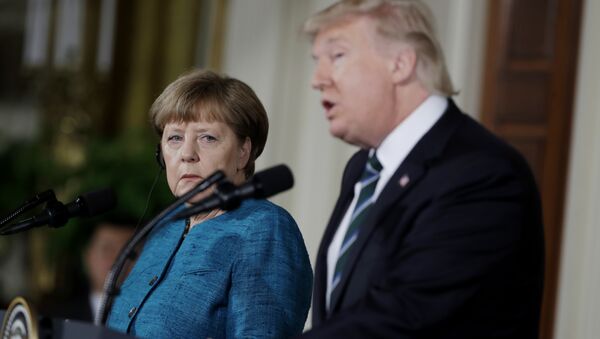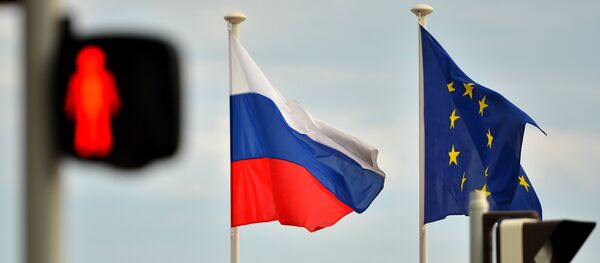If the new sanctions are implemented by the EU in the form in which they were adopted by the US Senate, this will have far more drastic consequences than the previous restrictive measures, the chairman of the board of the Russian-German Foreign Trade Chamber, Matthias Schepp, said in an interview with Sputnik Germany.
"Sanctions have a negative impact on businesses. We would be very pleased if sanctions were abolished in the near future. They have a negative impact not only on the Russian and German economy, but also on the political sphere," Schepp said.
According to him, Russia will never develop along the path the West wants it to. If the sanctions last for 15-20 years, this will only isolate Russia from the West and further deteriorate Russia-EU relations.
"The course on economic reforms in Russia will continue despite the sanctions. We can conclude this from the fact that Russia climbed from the 124th to the 40th place in the World Bank's investment rating. The Russian government has succeeded in continuing the course of economic reforms and reached significant progress in improving the investment climate in certain areas," Schepp said.
The US Senate approved a new package of anti-Russian sanctions amid Russia's alleged meddling in last year's US election. The sanctions include a clause that aims to stop Europe's Nord Stream 2 gas pipeline project by threatening sanctions against European firms involved in the project.
Germany and Austria have reacted strongly to the sanctions, which were decided unilaterally and without any discussion with Washington's allies in Europe. Germany's Foreign Minister Sigmar Gabriel and Austria's Chancellor Christian Kern called them a threat to Europe's energy supplies, which would put thousands of jobs on the line.




